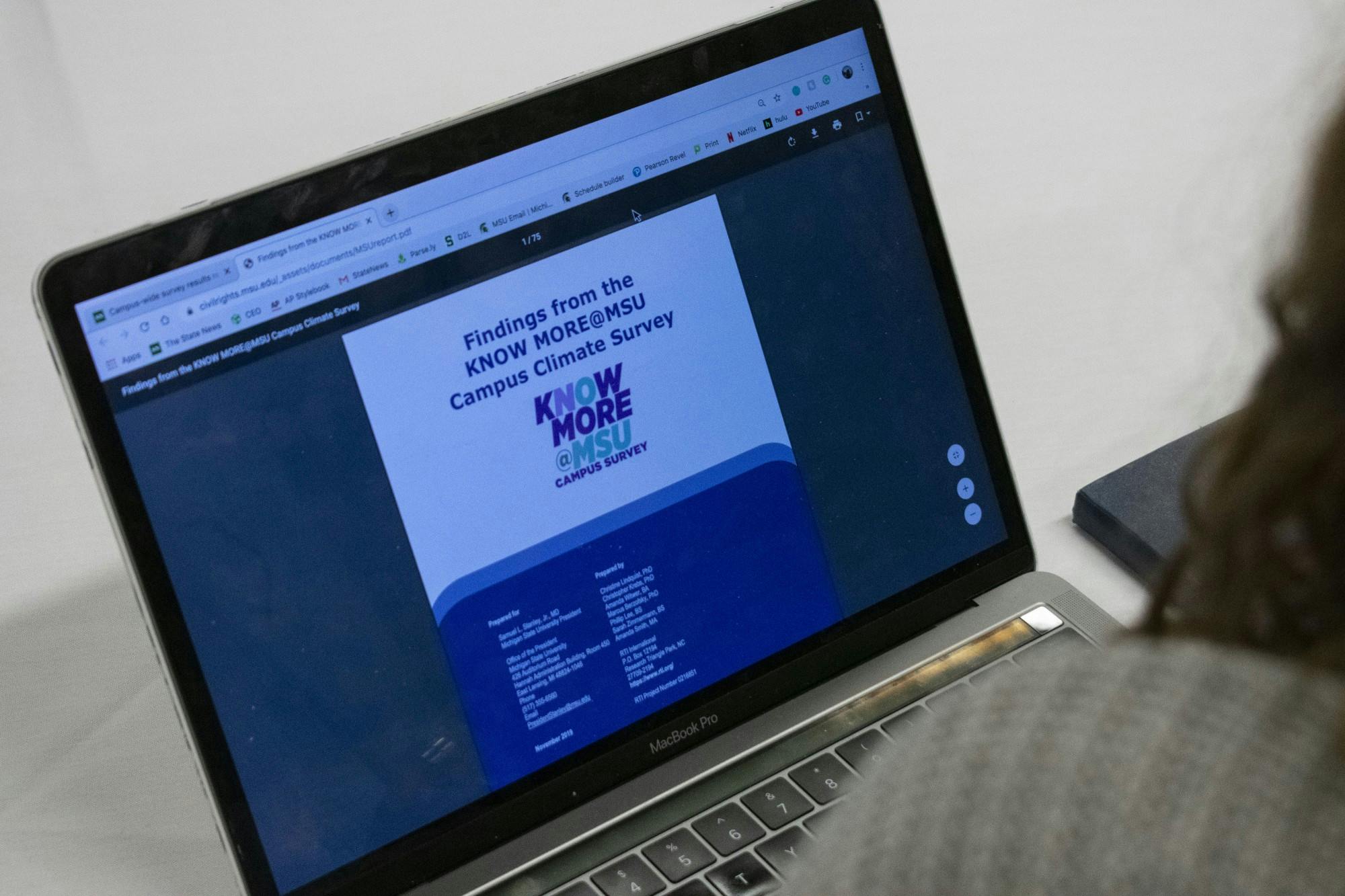Following results from the Know More Campus survey released in January, members of the Relationship Violence and Sexual Misconduct Expert Advisory Workgroup hosted the first of four input sessions to gather feedback on campus services, prevention efforts and policies on Monday.
The survey evaluates the levels of relationship violence and sexual misconduct, or RVSM, on campus. It asks students, faculty and staff about their experiences with and perceptions of RVSM on campus, along with their knowledge and use of campus resources.
The input sessions are led by RVSM advisor Rebecca Campbell along with representatives from the various support groups on campus.
After reviewing the results of the 2022 survey, the workshop group opened the session for questions and feedback. Much of the discussion surrounded the survey’s results which showed a disproportionate amount of RVSM victimization for transgender and non-binary students, faculty and staff. Campbell said this concern has already been addressed with the university administration.
“When I look at these data, I say I am worried, I am concerned for our trans and non-binary students, faculty and staff,” Campbell said. “What I put to interim president Woodruff is, what are we going to do as an institution for our trans and non-binary students, faculty and staff who are experiencing these rates of violence?”
Lydia Weiss, an administrator for the Prevention Outreach and Education department, said members of her group and other inclusion groups on campus have initiated conversations with MSU administration regarding the survey data. She said there is a lot of follow-up needed to make progress.
“A list of questions, demands has gone to the president and the chief diversity officer,” Weiss said.
In response to the survey results, MSU Safe Place has strengthened its relationship with the Gender and Sexuality Campus Center, enacting weekly meetings to implement improved services for transgender and non-binary individuals.
“We’re working on gathering data to do peer-led support groups with those experiencing relationship violence or stalking that are trans or non-binary,” MSU Safe Place director Holly Rosen said.
Center for Survivors director Tana Fedewa said a primary focus of the new University Health and Wellbeing department will be inclusivity and recent meetings have addressed gender-affirming care for students.
“That’s work we are really going to be prioritizing in the upcoming calendar year,” Fedewa said. “We started having those conversations, but we’ll continue making some changes and gathering information differently … and then looking at how we set up services that are more inclusive and more responsive.”
While the survey results suggest improvements in the helpfulness of campus services, survivors continue to speak out. One attendee said she is concerned with the disconnect she sees between the survey results and what she has heard from individual stories. She said it seems like "the news is exposing issues that often a survey cannot."
Campbell said it is necessary to look at both anecdotal stories and survey results to better address issues of RVSM at the university as they provide “different levels of analysis.” She said personal stories and the survey both represent points of view and experiences at the university.
At the end of the input session, Campbell said that data is needed from both the university and individuals in order to create change on campus. She said the Know More Survey data and information from the listening sessions will be used to reevaluate the RVSM strategic plan.
Additional sessions will be held on March 21, March 27 and March 28, and are open to all students, faculty and staff.
“Clearly the data do suggest that we are going to need to be thinking about both services and prevention differently for our trans and non-binary folks at a minimum,” Campbell said. “We hope this data is helpful to all of you, it’s certainly helpful to us in guiding what our efforts need to be in terms of services, prevention and policy.”
Support student media!
Please consider donating to The State News and help fund the future of journalism.
Discussion
Share and discuss “Campus RVSM service groups will prioritize transgender, non-binary care following survey” on social media.







